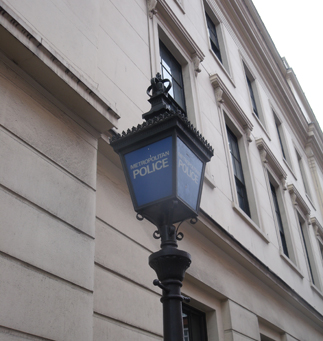Author: John Sutherland
ISBN No: 9781474606066
Review date: 25/04/2024
No of pages: 304
Publisher: W&N
Publisher URL:
https://www.orionbooks.co.uk/
Year of publication: 19/11/2017
Brief:
The sub-title and the simple but neat front cover tell us what to expect. A tin toy copper is on his side. Keeping the Peace and Falling to Pieces. For non-coppers, John Sutherland’s book serves a double purpose, just as, you suspect, the book served a double purpose for its author. We learn what it’s like to be a London bobby who rises through the ranks, and the cost to his well-being, besides seeing through his eyes – and smelling through his nostrils – present-day London. For Sutherland, the book may have served as an end and a beginning; for ‘a middle-aged man, once broken almost beyond repair. Slowly mending. Still believing in hope.’ By recalling how he held it together, until he no longer did, Sutherland was self-healing; and seeking to carry out a larger service, of showing what other police of all ranks do, on our behalf.
One of the attractions of the book is that precisely because police get called to everything, the book has something for everyone. If you watch football, consider that from his experience of policing London matches at Chelsea and QPR, Sutherland notes that some supporters go through a strange change; ‘otherwise perfectly reasonable, sensible adult human beings pull on their club colours and turn themselves into one-eyed, foul-mouthed, hate-filled morons’.
Sutherland tells us of forcing the way into a flat or maisonette to find someone dead, and decayed. After dark, he says, London is different; it ‘has a capacity to reveal its sad stories’, that police, as the emergency service increasingly taking the place of mental health and other services out of office hours, are the only witnesses to. The broken lives, and the lost innocent lives; the unease that his work provokes in Sutherland, we sense is building. Police have their way of dealing with the stresses of the job; when Sutherland gets punched in the face and is off work ‘for the rest of the week’, he gets a card from his boss ‘with a picture of a duck on the front … to remind me what to do the next time someone throws a punch’.
The pleasure of any memoir is that we learn about the private life, and private work life, of someone. Sutherland makes chief inspector and is sent to work for the then Commissioner, Sir John Stevens, in his private office (‘a bit of a legend. With a bit of a temper.’)
As Sutherland leaves that office after a year and rises further in rank, and responsibilities – he becomes a hostage negotiator – so his work takes in more cases in the news; murders, of Ben Kinsella for example. We see the dilemma for Sutherland and indeed for anyone at work; you have to be true to yourself, authentic, or else what are you? Yet that means you feel committed; you work to ‘relentless standards and pace’; you weep, you feel guilt; for Sutherland, like many police officers, he realises that policing ‘is just one small part of the puzzle’. The backgrounds of murderers, he finds, often include domestic violence; violence begets violence. Enforcing the law only patches things up: “Something more is required.” For anyone in the job of policing to do good, rather than await a pension, there is as Sutherland puts it, no sense of ‘job done’.
So as the crimes mount up, despite the humorous and absurd – Sutherland is police match commander for a big Arsenal FC match, only 48 hours after having ‘the snip’, which leaves him temporarily bow-legged – and the rewards of doing some jobs, the challenges are always there also. The promotions keep coming. Sutherland turns 40 and is Camden borough commander. The shootings, knifings and ‘cycle of violence’ go on also, ‘most of them over nothing’.
By this time, the public sector is beginning to feel austerity; ‘everything can’t be a priority’. As borough commander, he’s bothered by some things – the obsession with numbers, and ‘performance’, the scrutiny by higher-ups, the gross mark-ups by private suppliers – that lower ranks are blissfully ignorant of.
In 2012 Sutherland is offered another promotion, to command in Southwark. He’s having to close local police stations, and is faced by ‘an absence of alternatives’. He starts to feel unwell, and he has to ask for time off. He’s taking anti-depressants. He’s lost his nerve. “I used to run a borough; now I can just about run a bath.” He’s become worn down. He can only watch old Ashes cricket on the floor. He takes pills and has counselling. He goes back to work, ‘at a fraction of my old pace’. He cannot do stress or trauma; he has seen enough. And there his story ends.
Or rather, let us hope that it has not; far from it. Sutherland has done a considerable service to show us what it’s like to police modern, changing London; and for being open about his illness. Does it make sense to hope that we shall hear more from him; or, that he no longer feels the need to chronicle?










